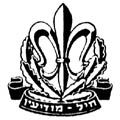





 Military intelligence, or Aman, produces comprehensive national intelligence
estimates for the prime minister and cabinet, daily intelligence
reports, risk of war estimates, target studies on nearby Arab
countries, and communications intercepts. Aman also conducts
across-border agent operations.
Military intelligence, or Aman, produces comprehensive national intelligence
estimates for the prime minister and cabinet, daily intelligence
reports, risk of war estimates, target studies on nearby Arab
countries, and communications intercepts. Aman also conducts
across-border agent operations.
Aman is an independent service, co-equal with the army, navy and air force and has an estimated staff of perhaps 7,000 personnel. It is currently (2003) led by Major General Aharon Ze'evi.
Aman's Foreign Relations Department is responsible for liaison with foreign intelligence services and the activities of Israeli military attach�s abroad. The Sayeret Maktal General Staff Deep Reconnaissance Unit is Israel's primary counter-terrorism and intelligence-gathering entity.
Small air force and naval intelligence units operated as semi-autonomous branches of Aman. Air force intelligence primarily uses aerial reconnaissance and radio intercepts to collect information on strength levels of Arab air forces and for target compilation. In addition to reconnaissance aircraft, pilotless drones are used extensively to observe enemy installations. Naval intelligence collects data on Arab and Soviet naval activities in the Mediterranean and prepares coastal studies for naval gunfire missions and beach assaults.
A number of electronic intelligence collection and observation facilities are located on the Golan Heights, including a facility at Har Avital which monitors Syria, and another at Mount Hermon which monitors both Lebanon and Syria.
Aman was held responsible for the failure to obtain adequate warning of the Egyptian-Syrian attack that launched the October 1973 War. Many indications of the attack were received but faulty assessments at higher levels permitted major Arab gains before the IDF could mobilize and stabilize the situation.During preparations for the invasion of Lebanon in 1982, Aman correctly assessed the weaknesses of the Christian militia on which Israel was depending and correctly predicted that a clash with the Syrian garrison in Lebanon was inevitable. The chief of intelligence, Major General Saguy, made these points to the general staff and privately to the prime minister. But, although he was present at cabinet meetings, he failed to make his doubts known to avoid differing openly with Begin and Sharon. Saguy was forced to retire after the Kahan Commission found that he had been delinquent in his duties regarding the massacres at the Sabra and Shatila Palestinian refugee camps.
